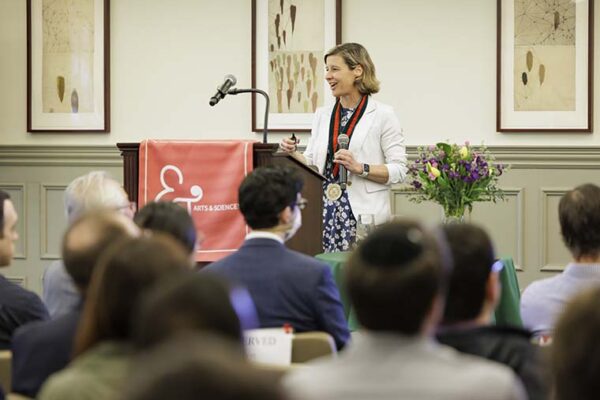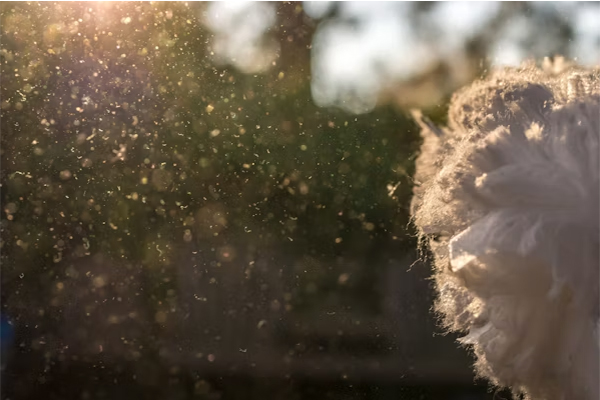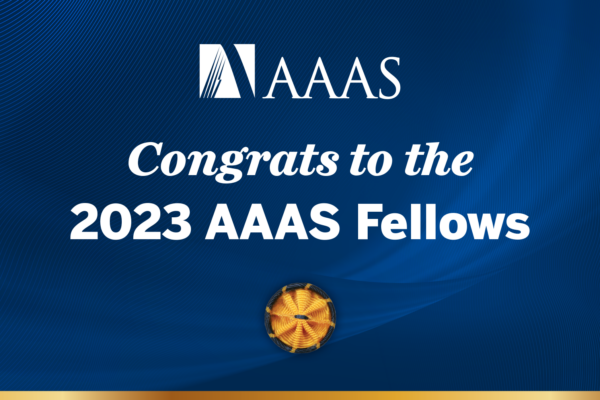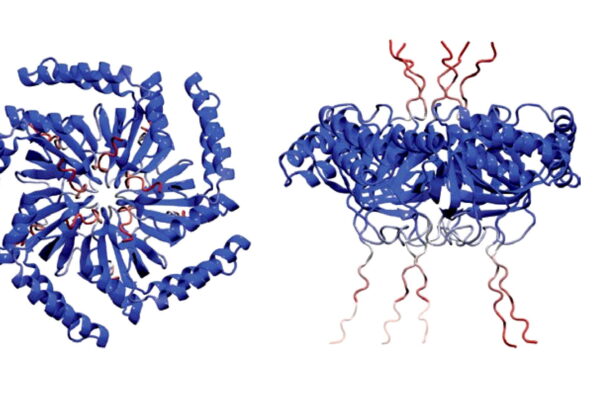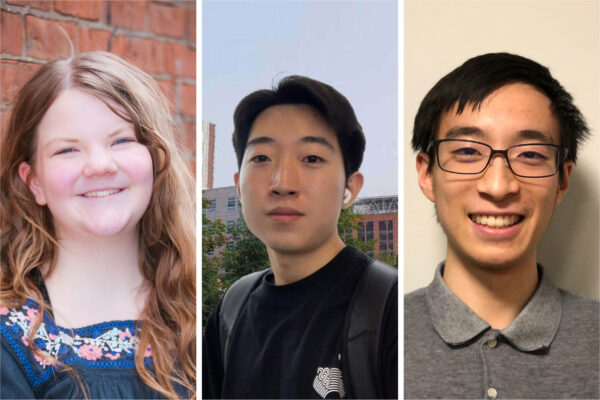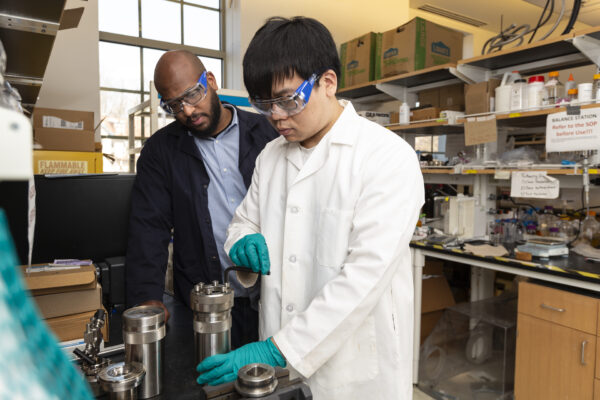Chemo for glioblastoma enhanced by tapping into cell’s daily rhythms
A study from biologists and clinicians at Washington University in St. Louis reports that glioblastoma cells have built-in circadian rhythms that create better times of day for treatment.
Class Acts: Avital Isakov
A 2023 Astronaut Scholar, Avital Isakov studies green energy solutions in Robert Wexler’s laboratory in the Department of Chemistry in Arts & Sciences and plans to pursue a PhD in computational and theoretical chemistry.
Heemstra installed as Charles Allen Thomas Professor in Chemistry
Jennifer Heemstra was installed as the Charles Allen Thomas Professor in Chemistry in Arts & Sciences at Washington University in St. Louis during a ceremony April 10 at the Whittemore House. Her lab is focused on harnessing the capabilities of proteins and nucleic acids to address unmet needs in biomedicine and the environment.
Role of dust on indoor environmental air quality gets closer look
Jenna Ditto, an assistant professor of energy, environmental and chemical engineering in the McKelvey School of Engineering at Washington University, is taking a closer look at the chemistry of indoor dust with a three-year $453,000 grant from the National Science Foundation.
Nine WashU faculty elected to AAAS
Nine faculty members at Washington University in St. Louis are among the 502 new fellows selected by the American Association for the Advancement of Science, one of the most distinct honors in the scientific community.
Researchers ID protein responsible for gas vesicle clustering in bacteria
Rice University bioengineers and colleagues at Washington University and Duke University identified a protein nanostructure that plays a role in the cellular structure of certain microorganisms, paving the way toward more efficient biotechnological and biomedical applications.
Three juniors selected as Goldwater Scholars
Three WashU students have received the Barry Goldwater Scholarship, a prestigious award that honors students who conduct research in the natural sciences, mathematics and engineering. The winners, all juniors, are Makenna Fluegel, Aidan Li and Sean Wang.
Transforming wood waste for sustainable manufacturing
Marcus Foston, an associate professor of energy, environmental and chemical engineering at the McKelvey School of Engineering, is exploring how to add value to lignin, a type of polymer found in wood.
WashU engineers manage a first: measuring pH in cell condensates
In a first for the field, biomedical engineers at the McKelvey School of Engineering determined the pH profiles of certain key types of cellular condensates.
Efficient lithium-air battery under development to speed electrification of transit
With $1.5 million from the U.S. Department of Energy, a collaborative team of researchers led by the McKelvey School of Engineering is working toward creating efficient and reliable batteries for transportation use.
Older Stories


